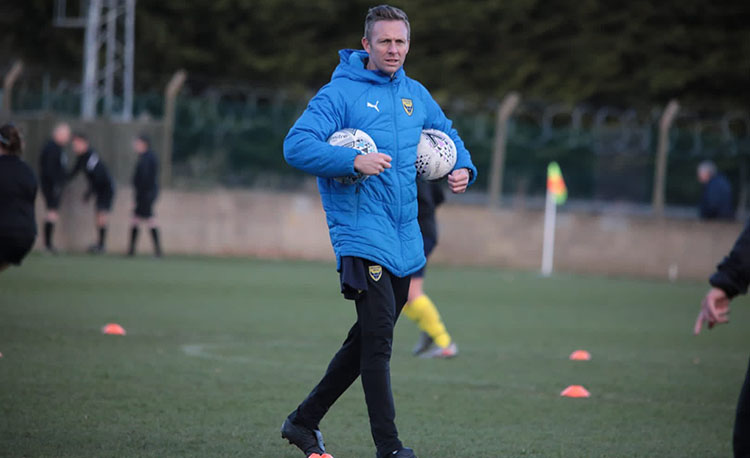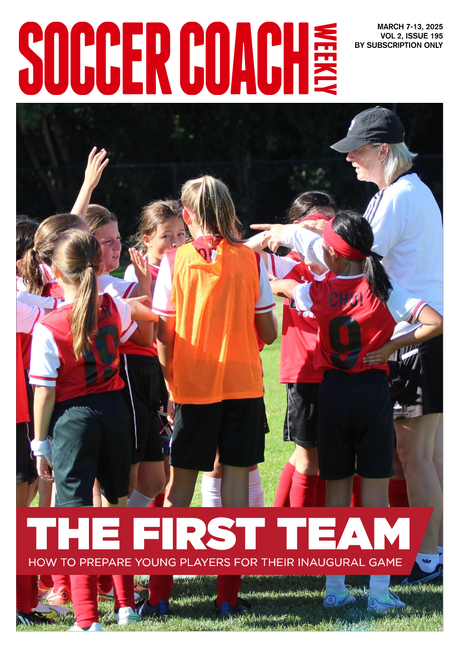10 steps to support your development
From reflection and getting feedback to reading widely and challenging your own beliefs, Tom Hartley provides tips for self-improvement as you coach.
As you plan and deliver sessions to improve your players, it is easy to overlook your own development.
But continuing to learn about yourself, your methods and your goals is very important. As the New Zealand rugby union team asks: “Where are you growing?”.
It is a simple question - but can provoke some answers from within that further your self-improvement.
Here are 10 top tips on how to support your own learning and development.
01 TAKE TIME TO REFLECT
Reflection improves your practice as a coach. It can take many forms but engaging in it in some way will improve your coaching craft. You may use a model or template, or just preserve some time to gather your thoughts.
02 GET A COACH DEVELOPER
A coach developer doesn’t tell you what to do or fix problems you have as a coach. But they will hold up mirrors and help you see your coaching from a different perspective, while asking questions and nudging your thoughts. Consider it positive disruption!
03 FILM YOURSELF COACH
Watching video of yourself coaching can make you squirm. But it is brilliant feedback and gives you the opportunity to reflect in super-objective, high definition. You don’t need fancy kit - just an iPhone with a tripod.
04 MAP OUT YOUR NETWORK
Having an understanding of who you can go to within your network to get support with different things can be really useful. You are likely to have people who can be a sounding board, idea grower, critical friend, success celebrator, and more.
05 SEEK FEEDBACK
Gaining feedback on your coaching can really help you build your self awareness. It supports your growth and development, especially if you are happy to listen to some of the uncomfortable stuff. Try and be specific in how you would like the giver to help you.
06 READ WIDER THAN YOUR SPORT
We can all end up reading the same things as our peers. It is great to have shared interests, but there is a risk of developing ’group-think’ or creating an echo chamber. Reading - or watching or listening - on the fringes of your world can be ace.
07 CHALLENGE YOUR VIEWS AND BELIEFS
While we are on that point of echo chambers, think about what makes you who you are as a coach. Why do you coach the way you do? Are there some things you are potentially missing that could maximise your performance?
08 SPEND MORE TIME PLANNING
Purposeful planning can improve your understanding of performance while coaching. Taking time to plan more than your Xs & Os is also important. What are the questions you are going to ask? How are you going to engage the athletes?
09 TAKE CARE OF YOURSELF
Want to look after your athletes? Start by looking after yourself. How do you expect to give players the best possible experience if you haven’t slept or eaten well, or not had time to rest and recover?
10 CREATE AN IDP
When it comes to your learning and development, having a plan will help point in the right direction. You might have clear goals you want to achieve, or some fuzzy goals with a general direction in mind.
Related Files
Newsletter Sign Up
Coaches Testimonials

Gerald Kearney, Downtown Las Vegas Soccer Club

Paul Butler, Florida, USA

Rick Shields, Springboro, USA

Tony Green, Pierrefonds Titans, Quebec, Canada
Subscribe Today
Discover the simple way to become a more effective, more successful soccer coach
In a recent survey 89% of subscribers said Soccer Coach Weekly makes them more confident, 91% said Soccer Coach Weekly makes them a more effective coach and 93% said Soccer Coach Weekly makes them more inspired.
*includes 3 coaching manuals
Get Weekly Inspiration
All the latest techniques and approaches
Soccer Coach Weekly offers proven and easy to use soccer drills, coaching sessions, practice plans, small-sided games, warm-ups, training tips and advice.
We've been at the cutting edge of soccer coaching since we launched in 2007, creating resources for the grassroots youth coach, following best practice from around the world and insights from the professional game.







